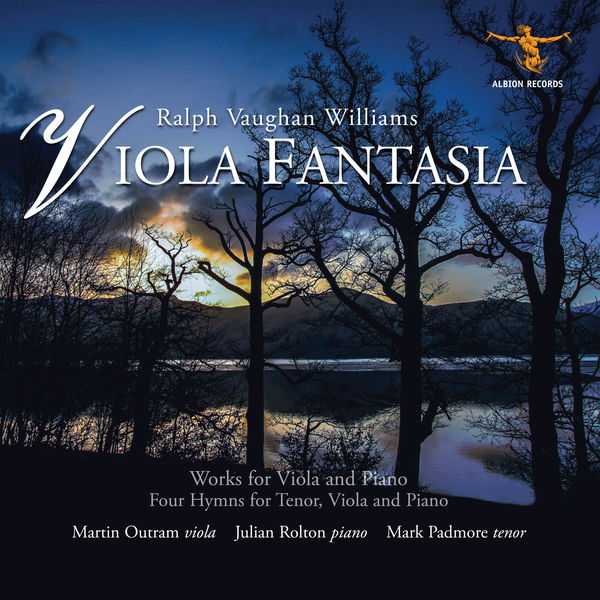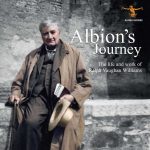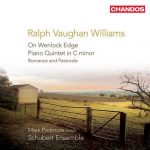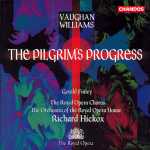
Composer:Ralph Vaughan Williams
Performer: Martin Outram, Julian Rolton, Mark Padmore
Format: FLAC (tracks)
Label: Albion
Catalogue: ALBCD036
Release: 2019
Size: 474 MB
Recovery: +3%
Scan: yes
Suite for Viola and Pianoforte
01. I. Prelude
02. II. Carol
03. III. Christmas Dance
04. IV. Ballad
05. V. Moto perpetuo
06. VI. Musette
07. VII. Polka mélancholique
08. VIII. Galop
09. Romance for Viola & Piano
Six Studies in English Folk Song
10. No. 1, Adagio [Lovely on the Water]
11. No. 2, Andante sostenuto [Spurn Point]
12. No. 3, Larghetto [Van Dieman’s Land]
13. No. 4, Lento [She Borrowed Some of Her Mother’s Gold]
14. No. 5, Andante tranquillo [The Lady and the Dragoon]
15. No. 6, Allegro vivace [As I Walked Over London Bridge]
16. Fantasia on “Greensleeves”
17. Fantasia on Sussex Folk Tunes
Four Hymns for Tenor, Viola and Pianoforte
18. No. 1, Lord! Come Away
19. No. 2, Who Is This Fair One?
20. No. 3, Come Love, Come Lord
21. No. 4, Evening Hymn
Martin Outram (Viola) and Julian Rolton (piano) play all of the works of Ralph Vaughan Williams for viola and piano. Mark Padmore (tenor) joins them to record Four Hymns for Tenor, Viola and Piano.
Ralph Vaughan Williams (1872-1958) learned the piano and violin from an early age, but took to the viola while still at school and continued to play it all his life; this instrument is associated with his most romantic and impassioned music. His contemporary, the great viola virtuoso Lionel Tertis, was the inspiration for two of the works presented here.
The Suite for Viola and Small Orchestra was premiered by Tertis in 1934, soon followed by a viola and piano edition. The eight movements of this lively work mainly represent dances. The short but lovely Romance is thought to have been written for Lionel Tertis at approximately the time of the First World War. It was apparently never performed and was found after the composer’s death.
The Six Studies in English Folk Song, dedicated in 1926 to the cellist May Mukle, were produced in alternative versions for cello, viola, violin and clarinet, all with piano. Folk songs were important to Vaughan Williams, who collected many of them, and this work is based on six of them. This work in turn led on to a Fantasia on Sussex Folk Tunes for cello and orchestra, dedicated in 1929 to Pablo Casalls. John Lenehan published a piano reduction of the piano part and Martin Outram has adapted the cello solo part for the viola. The Fantasia on Greensleeves derives from VW’s 1928 opera, Sir John in Love. Based on a well-known tune, possibly of the Tudor period, at incorporates another folk song, Lovely Joan.
The Four Hymns for Tenor, Viola and Piano date from just before the first world war. Based on texts dating from the 17th to the 20th century (by Bishop Jeremy Taylor, Isaac Watts, Richard Crashaw and Robert Bridges), they are weighty in mood and rise to feelings of religious ecstasy. Martin Outram plays the viola with the internationally renowned Maggini Quartet. He has recorded over 50 discs and has received a Gramophone Award, the Diapason d’Or, a Cannes Classical Award, three Grammy nominations and the Royal Philharmonic Society Award for chamber music.
Julian Rolton has worked as a pianist with the Calgary Philharmonic Orchestra in Canada, performed concertos by Britten, Shostakovich and Strauss in the South Bank Centre, London and Kagel’s Phantasiestcke with Martyn Brabbins and Sinfonia 21 at the Ars Musica Festival in Brussels. He was a member of the Chagall Trio which released an acclaimed premiere recording of works by Ethel Smyth on Meridian. Martin and Julian together have made recordings of works by Rawsthorne, Bliss and Arnold Bax, and a disc titled The English Viola.
Mark Padmore has established an international career in opera, concert and recital. His appearances in Bach Passions have gained particular notice, especially his renowned performances as Evangelist in the St. Matthew and St. John Passions with the Berlin Philharmonic Orchestra and Sir Simon Rattle, staged by Peter Sellars. In opera Mark has worked with directors Peter Brook, Katie Mitchell, Mark Morris and Deborah Warner.
In concert Mark performs with the world’s leading orchestras. He was Artist in Residence for the 2017-18 Season with the Berlin Philharmonic Orchestra and held a similar position with the Bavarian Radio Symphony Orchestra for 2016-17. His work with the Orchestra of the Age of Enlightenment has involved projects exploring both Bach St. John and St. Matthew Passions and has attracted worldwide acclaim. Mark has performed all three Schubert song cycles in Amsterdam, Barcelona, Birmingham, London, Liverpool, Paris, Tokyo, Vienna and New York.
Composers who have written for him include Sally Beamish, Harrison Birtwistle, Jonathan Dove, Thomas Larcher, Nico Muhly, Alec Roth, Mark-Anthony Turnage, Huw Watkins, Ryan Wigglesworth and Hans Zender.
Mark was voted 2016 Vocalist of the Year by Musical America and was awarded an Honorary Doctorate by Kent University in 2014. He is Artistic Director of the St. Endellion Summer Music Festival in Cornwall.
It requires the presence of some arrangements for the promised complete works for viola and piano of Ralph Vaughan Williams to fill out a CD recording, but Vaughan Williams did several of these arrangements himself; he was a violist, and he wrote well for the instrument. The Suite for viola and pianoforte, originally for viola and small orchestra but reduced by the composer, is a rarely heard find. Its eight movements are short and seem artless, but they conceal a great deal of thought that must have been what caused the composer to say the work was giving him difficulty. They lie on the boundary between Vaughan Williams’ characteristic pastoral language and the reigning neoclassic style of the day (the original Suite dates from 1934). They achieve considerable emotional subtlety; sample the seemingly oxymoronic “Polka Mélancholique.” The following Romance for viola and piano, of indeterminate age, is the only actual viola-and-piano work on the album, and it’s pretty slight. Vaughan Williams produced several alternative versions of the Six Studies in English Folk Song, including the present one for viola and piano. They are exactly what they sound like: not transcriptions of folk songs, but experiments in how their language might be applied. The familiar Fantasia on Greensleeves was not arranged for viola and piano by Vaughan Williams, but the piece works well in this version, with the famous tune lying squarely in the middle of the viola’s range. The Fantasia on Sussex Folk Tunes went through two rounds of arrangement: one of them by the fine violist here, Martin Outram (you’d never know it), and it’s a strong counterpart to the Greensleeves fantasia. The only disappointment here is the set of Four Hymns for tenor, piano, and obbligato viola; tenor Mark Padmore is too stentorian for the music and the viola part is inessential indeed. Apart from this letdown, the album is enjoyable, perfectly performed, and nicely recorded. In consistently Vaughan Williams-mad Great Britain, it has had considerable commercial success, and that’s no surprise.



